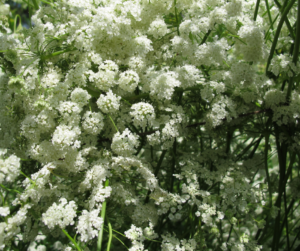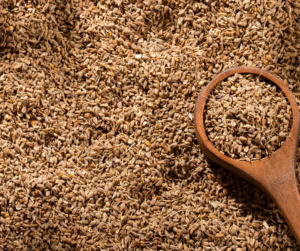Anise: The Sweet-Smelling Herb
Latin Name: Pimpinella anisum
Common Name: Anise
What is Anise? Anise is a fragrant herb with small white flowers and seeds that taste like licorice. People have used it for centuries for its culinary and medicinal properties.
Traditional Herbal Information
In traditional herbal medicine, anise was prized for its digestive benefits. People brewed it into teas or chewed the seeds to relieve indigestion, bloating, and gas. It was also used to soothe coughs and promote healthy digestion.


Modern Applications
Anise is famous for its many uses.
Here are some modern applications:
Digestive Aid
Anise seeds are used to ease indigestion, stomach cramps, and bloating. They may also help stimulate appetite and relieve nausea.
Respiratory Support
Anise is an expectorant to help loosen mucus and relieve coughs, bronchitis, and congestion.
Flavoring Agent
Anise is commonly flavored in foods, beverages, and candies. It adds a sweet, licorice-like taste to dishes and desserts.
Aromatherapy
Anise essential oil is used in aromatherapy to promote relaxation, relieve stress, and improve mental focus.
Uses and Benefits
Anise offers several health benefits. It can:
- Ease indigestion, bloating, and gas
- Relieve coughs, bronchitis, and congestion
- Stimulate appetite and aid digestion
- Promote relaxation and reduce stress
Contraindications
While anise is generally safe, there are a few things to consider:
- Allergies: Some individuals may be allergic to anise or plants in the Apiaceae family, such as fennel or celery. Allergic reactions may include skin irritation, swelling, or difficulty breathing.
- Pregnancy: Pregnant women should avoid consuming large amounts of anise, as it may stimulate uterine contractions.
- Blood Clotting: Anise may have blood-thinning effects in some people. Individuals taking blood-thinning medications should use caution when consuming anise.
In conclusion, anise is a versatile herb with a long history of use in culinary and medicinal applications. Whether used to soothe digestive issues or relieve coughs, it offers sweet-smelling benefits for health and wellness.
Disclaimer
Disclaimer Blog
The information presented on the Heart of Herbs Herbal School/Demetria Clark websites is for educational purposes only. Heart of Herbs Herbal School/Demetria Clark Education LLC makes neither medical claims nor intends to diagnose or treat medical conditions. Links to external sites are for informational purposes only. Heart of Herbs Herbal School/Demetria Clark neither endorses them nor is in any way responsible for their content. Readers must do their own research regarding the safety and usage of any herbs, recipes, or supplements.
Affiliate Disclosure
Some posts contain affiliate links. When you click on these and make a purchase the cost is the same for you, but we earn a small commission that helps me to provide scholarships to students. We only promote products that we know our clients have liked themselves.
Heart of Herbs Herbal School is a Amazon affiliate. As an Amazon Associate, we earn from qualifying purchases.
I started this course with high hopes, and honestly, the course exceeded my expectations. I thoroughly enjoyed the course and feel confident in the information I have gained!
Keep up the great teaching!! There are zero complaints from me as a student!
